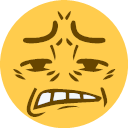The left is far to divided and needs a central leader. The advantage the liberals and conservatives have are that their parties are not fractured. The two party system also prevents any way to win democratically so the only way to do this would be a revolution. But to have a revolution you must have the people on your side and Americans tend to look at a central leader like a president as the representation of a movement. How should we unite all of the different leftists under one leader so that there can be a united opposition. We also need to get more people to understand that currently America is not a true democracy and that the only way to fix this is with violence. Currently we need far more comrades like Luigi to remove the bourgeoisie with violence. If there are people with nothing left to lose some brave comrade should give them a weapon so they can do something.
For those of us living in the USA discussing theory won’t change anything. Only action will. United we will win, fractured we will fall.


Excellent answer and great quotes!
I could not have said this better myself!
We can grow to be better communists by emulating Stalin’s example as explained in “Stalin’s Library: A Dictator and his Books” by Geoffrey Roberts, (yes I know the title’s but its actually a very educational book) where G. Roberts notes that Stalin made it a habit of reading the works of his ideological enemies to understand them, adopt what he agreed with, and criticized what he disagreed with.
but its actually a very educational book) where G. Roberts notes that Stalin made it a habit of reading the works of his ideological enemies to understand them, adopt what he agreed with, and criticized what he disagreed with.
Not mentioning that he read as widely as he did deeply.